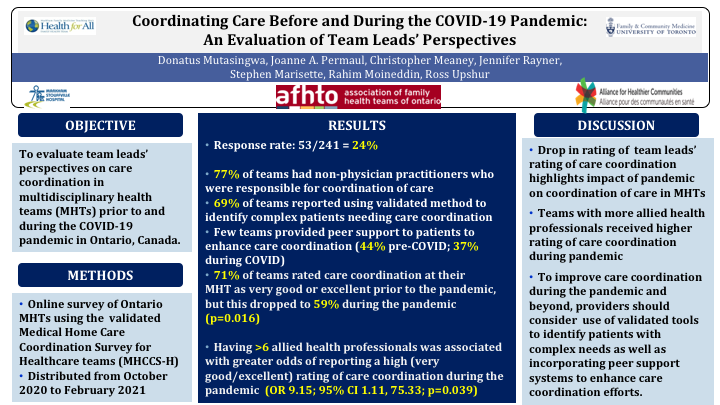Conceptualizing success factors for patient engagement in patient medical homes: a cross-sectional survey
#Summary
The research team surveyed primary care leaders across Ontario using validated survey instruments and looked at the below factors, and we found that the Processes directly and positively impacted Outcomes, and the Structures indirectly and favorably impacted Outcomes through - or as mediated by - their direct impact on Processes.

